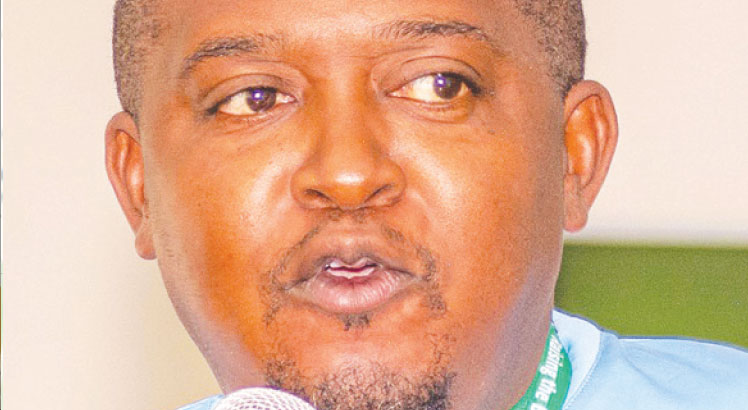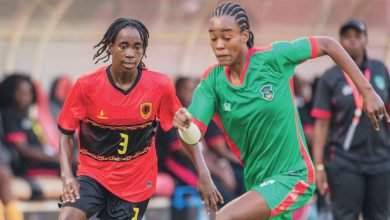Players’ quota looms
The recent influx of international players into the TNM Super League has ignited debate on the need for local football authorities to restrict the number of foreigners a club can sign.
Currently, Football Association of Malawi (FAM) regulations are silent on how many foreign players a club can sign.
Meanwhile, the association’s club licensing and compliance manager Casper Jangale has said it is now time to regulate non-Malawian players’ transfers.
Our survey which used FAM’s Mpira Connect, a database of all Super League players, shows that there are about 28 registered foreign players in the top-flight league.
However, the number could be higher as in the absence of FAM regulations, it is difficult to track all foreign players as some clubs opt to register them as locals to avoid hassles associated with processing work permits at the Department of Immigration and Citizenship Services.
Most of the registered players are from Tanzania, Zambia, Zimbabwe, Kenya, Cameroon,including West African countries such as Ghana and Nigeria.

While some TNM Super League clubs feel these foreign players make the league competitive, others feel if not regulated, they are a threat to local talent in an already small industry beset by funding challenges.
Creck Sporting Club, who are one of the clubs boasting of foreigners Ademola Ismail Ajibola, Babangida Ishaya, Peter Godfrey and David Kazachang Habu from Nigeria, believe the open-door policy is suitable for small teams to thrive.
The newly-promoted outfit’s board chairperson Muhammad Seleman said they opted to cross the borders since giants FCB Nyasa Bullets, Silver Strikers and Mighty Mukuru Wanderers monopolise the local transfer market.
He said: “We knew it would not be easy to get all the players we wanted locally. As rightly said, the same giant teams have also dominated on the local market in terms of player transfers and we wanted to balance up the two. They have always wanted to sign top talent and leave the rest for the other teams to fight for.”
On the introduction of the quota system, Seleman said it has both pros and cons.
He said: “It is a positive development where you want to produce your own talent in the country for football development. This is going to unearth hidden talent. There will be deliberate efforts to identify talent from the grassroots.
“However, it is negative in the sense of football as a business where instant results are needed. It will prevent clubs from buying players who are already established elsewhere and can give instant results for business purposes. Some clubs aim at selling players to other clubs. You need quality players to attract serious teams.”
TNM Super League defending champions FCB Nyasa Bullets have always had at least four foreigners since Zimbabwean coach Kallisto Pasuwa joined the giants in 2018.
This season, they have five in Nigerian Babatunde Adepoju, Kenyan Clyde Senaji, Zimbabweans Collin Mujuru, Ronald Chitiyo and Pasuwa’s son Kenneth.
Chitiyo, Mujuru and Babatunde were signed at the beginning of the 2024 season after letting go of Kenyan Collins Odhiambo Okumu.
In 2023, Ghanaian Isaac Badu was the highest paid player at Bullets, but only made two appearances before his two-year contract was terminated.
Bullets acting chief executive officer (CEO) Albert Chigoga said the foreigners have contributed a lot to their success during the past four years they have dominated the local league and cup competitions.
He, therefore, called for a more open approach in as far as recruiting foreign players is concerned.
Said Chigoga: “Having foreign quota is a common practice in the developed football world. For Malawi, we need to gauge its practicability in both the short and long-term.”
Bullets’ archrivals, Mighty Mukuru Wanderers on the other hand have Cameroonian striker Sama Thierry Tanjong in their 2024 squad.
Nomads CEO Panganeni Ndovi said time has come for the country to have a quota for foreign players.
“The quota system is great as it helps to promote local talent. We need to ensure that we control the number of people from foreign countries playing in our country so that we make the league competitive locally.
“We can, however, not control the countries from which those to be registered are coming from. As long as they meet the cut, then we should be good to go.”
Before signing Tanjong, Nigerian Adeleke Kolawole was the Nomads’ last foreign player, having featured for the side in the 2022 season before he was let go.
Interestingly, the Nomads have never been coy when it comes to foreign players and are well-known for having signed one of the most famous goalkeepers Thom Aidoo from Ghana in the late 90s.
But the most notable foreigner for the Nomads was poster boy from Japan Genki Nakamura in the 2016 season who never played a competitive match.
Amos Bello from Nigeria also donned the blue and white shirt the same season and left after a short stint without an impact.
From then, the Nomads shifted from signing foreign players directly to roping them in from local clubs.
For instance, they signed Kolaowole from Karonga United and before him, the Nomads contracted Yunus Sherrif and Michael Tetteh in 2021 after they were released by Silver Strikers.
They also signed Babatunde and Ghanaian Eric Atsiga from Masters Security in 2019 after they inspired the now-defunct side to Carlsberg Cup championship.
Atsigah left the Nomads in 2021 to return to his home country only to resurface at Karonga United where he played until February 2024 when he joined Bangwe All Stars.
But Babatunde, now with Bullets after returning from Venda Academy of South Africa at the beginning of the season, is regarded as the most successful foreign player on the local scene, having won the TNM Super League Player of the Season Award in 2021, TNM Super League Golden Boot (2021), Airtel Top 8 Golden Boot (2021) and FDH Bank Golden Boot (2022).
Meanwhile, after relying on homegrown talent for three seasons, Silver have signed Friday Oriafo Osagie from Bangwe all Stars.
But the Bankers’ CEO Patrick Chimimba also supported the introduction of the quota system.
“This is positive news. As we transform our game, we need to protect and safeguard local talent. If we flood our league with foreign players, then we will be killing our own products. The restrictions will align with what is commonly practised elsewhere,” he said.
Other foreign players in the Super League are Mzuzu City Hammers’ Fawedihimi Adeshina and Uzoagna Promise Chinonso from Nigeria and Chitipa United’s Shamte Mkongwa from Tanzania.
Bangwe All Stars are remaining with Atsiga, Temitope Ojeyike, Odyomo Gbolahin while Premier Bet Dedza Dynamos have South Sudanese Ochaya Okot and Samson Tijan and Cameroonian striker Franky Aoudou.
Soccer analyst Raymond Siyaya said having a foreign players quota is long overdue.
He said: “In Malawi, across the board, there seems to be this unbelievable credulity and naivety as regards anything foreign. We pamper foreign footballers at the expense of our local footballers. This is evidenced by Genki Nakamura to Badu, players who were past their prime and added no significant value to the clubs they went to.”
But another football analyst Patrick Zgambo feels the fact that foreign players are spread across the clubs shows that they have a positive impact.
He said: “One way our league can improve is to go international and be diverse. We are in a global village. We are in 2024 and cannot be homophobic and pretend that some foreigners have made things interesting. From Thom Aidoo to Babatunde and they should be welcomed without us becoming insecure and opting for jittery protectionism.”
He however, welcomed the calls for regulations guiding the signing of foreigners.
In England, the FA regulations state that each club is allowed to list up to 17 senior players that are not English or Welsh and did not spend a significant period in an English or Welsh academy, plus any number of home-grown players up to a maximum squad size of 25, plus an unlimited number of academy and under-21 players.




